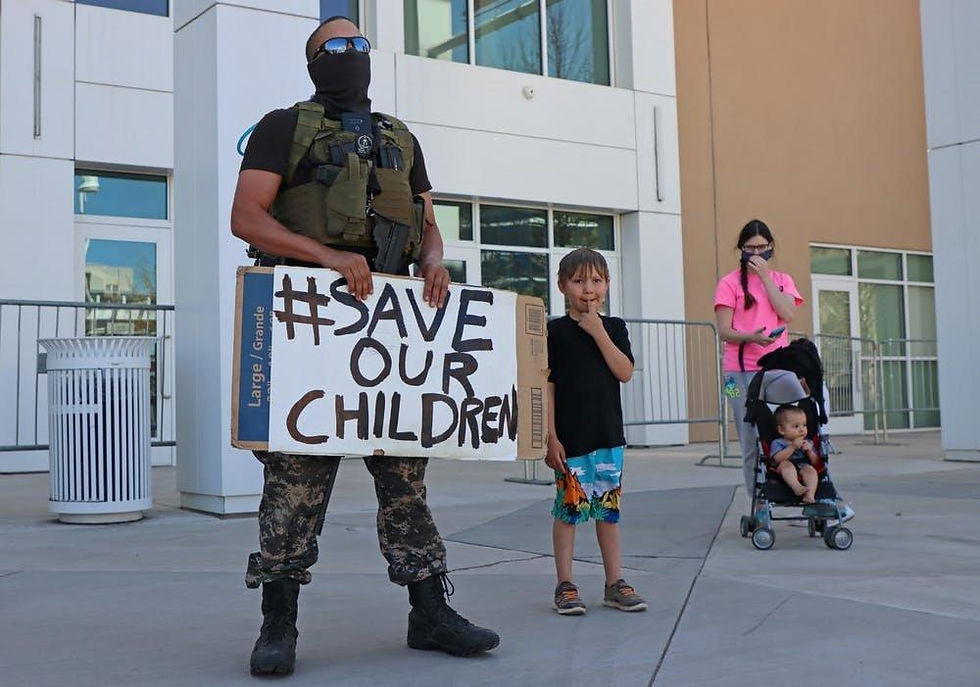Invasion or diaspora?
- Oct 22, 2018
- 3 min read
There's always at least two ways to view anything, and that goes for the 'caravan' of now 7,000 U.S.-bound immigrants, mostly from Honduras and Guatemala. I'd wager that most of us feel genuinely sorry for people whose lives are filled with chaos, but I'm also equally sure that most of us don't want those feelings of sincere empathy to cloud our judgment when it comes to enforcing our laws.

Put another way, this is a heart versus head argument that will have real consequences not only for our border states but also for the way we view our immigration laws and maybe other laws as well in the future. This is not one of those situations where we can look the other way and just open our borders to a few thousand simply because they have marched through two countries with hat in hand. The reality is that if we were to offer asylum to anyone in Central America, millions would take us up on our offer. So bad are the political and economic situations in Honduras, Guatemala and even Mexico, itself.
Back in February, President Trump gave Congress an opportunity to take care of the DACA problem and to secure our border and close some of the existing immigration law loopholes. The Democrats balked at it because of the chain migration, visa lottery and asylum provisions not to mention THE WALL. More than any other issue since Mr. Trump's election, their unwillingness to solve our immigration problem was the most visible sign of reprehensible partisan political brinkmanship. Now all of us are paying the price, and a high price it is. The President has threatened to close and reinforce our border with Mexico with Federal troops if this caravan is not stopped by the Mexican authorities, and he is within his rights to do so despite claims from Democrats that he would be violating the 'Posse Comitatus Act' of 1878.
The Posse Comitatus Act prohibits the federal government from using the armed forces as a posse comitatus for law enforcement, except in cases and circumstances expressly authorized by the Constitution or Act of Congress. One of those cases is the protection of U.S. citizens at our border with Mexico which is why he has the right to give such orders. Such troop mobilization won't solve the immigration problem, but it would protect the integrity of our border. It would also send an unmistakable signal to Mexico that it needs to do more than rhetoricize about such caravans. Thirdly, it might just be what's necessary to move the Congress off the dime to pass some legislation that would stem the tide of future caravans.
The diaspora of thousands of Central Americans picking up and leaving their homes and extended families is a real tragedy and so is the possibility that it will increase from the thousands of persons level to the millions if nothing is done. The President's threat of eliminating aid to Honduras and Guatemala is not so much a solution as it is a bargaining chip. The removal of aid from these countries would harm many of the bi-lateral and international programs currently in operation there. Guatemala, for example, has received billions of dollars in foreign aid from the U.S. and other countries over the decades and has the highest number of non-government organizations operating there, more than any other Central American country.
Turning off the U.S. aid spigot would be disastrous for some of these programs. A recent article entitled, "The effectiveness of U.S. aid in Guatemala" (www.panoramas.pitt.edu/economy-and-development) lays out the case for the aid question very well and points to the historic problem of the 'White man's burden' complex in U.S. foreign policy. The author, Kristen Gugerli, says, "This complex, rooted in an assumption of the inherent superiority of the U.S. and it’s ‘burden’ to guide less-developed countries, can be seen throughout U.S.-Latin American history, and particularly in the U.S.’s proclaimed ‘democracy-promotion’ in countries such as Guatemala." While real or perceived guilt shouldn't be THE primary factor for changing foreign policy (or immigration policy for that matter), it cannot be completely discounted, either. The bottom line is that we need a realistic and compassionate fix to our immigration laws. Soldiering up the border isn't a permanent solution.
Stephan Helgesen is a retired career U.S. diplomat and now political analyst and author. He has written nine books and over 900 articles on politics, economics and social trends. He can be reached at: stephan@stephanhelgesen.com







Comments